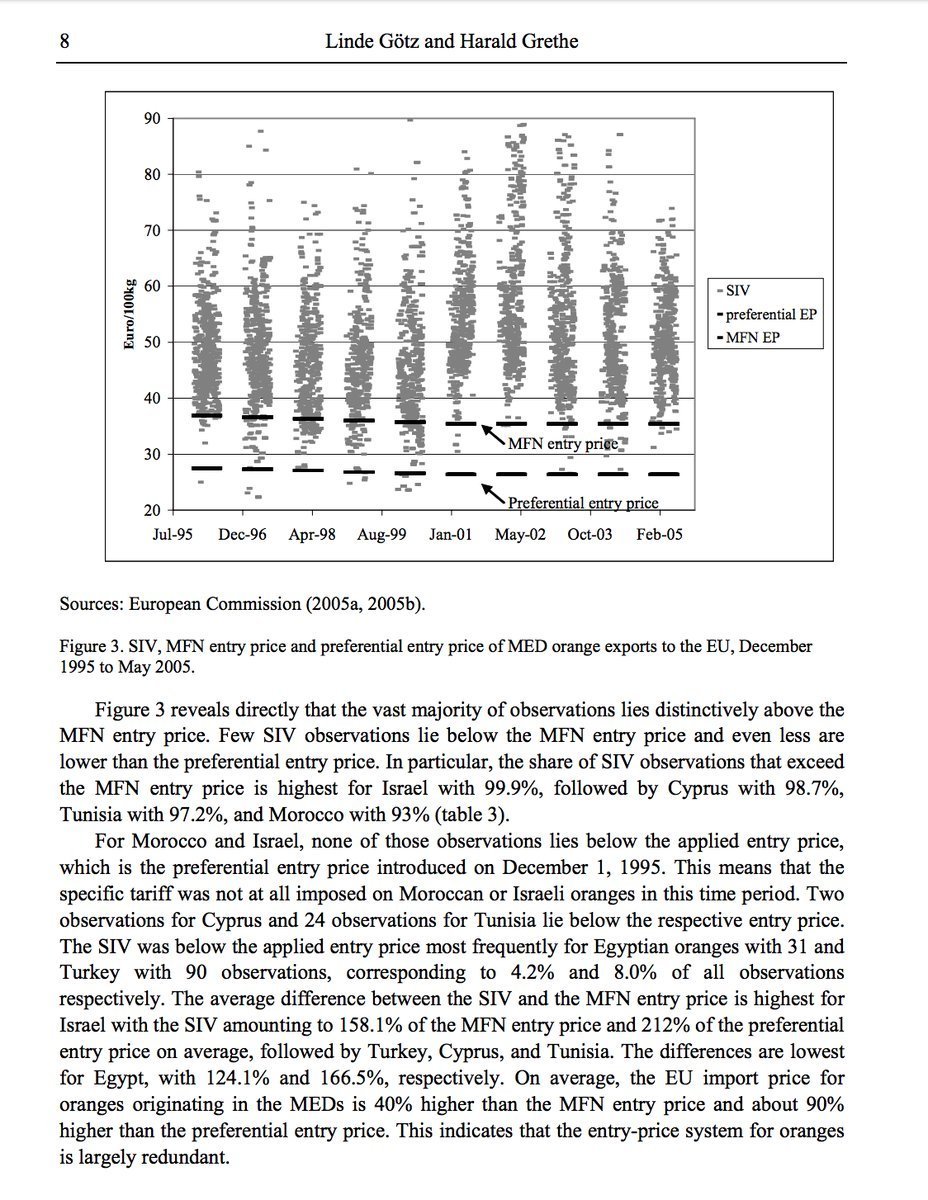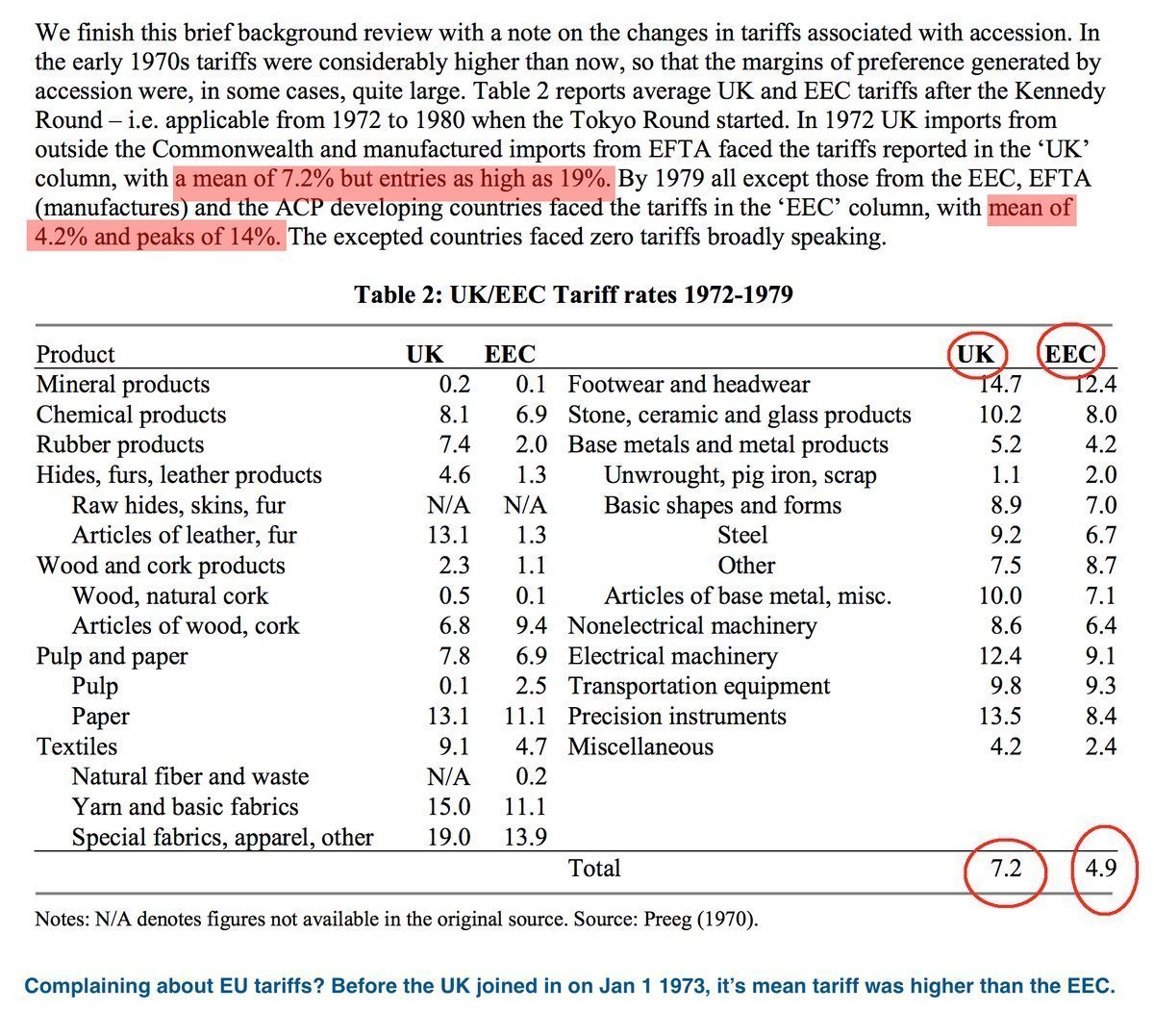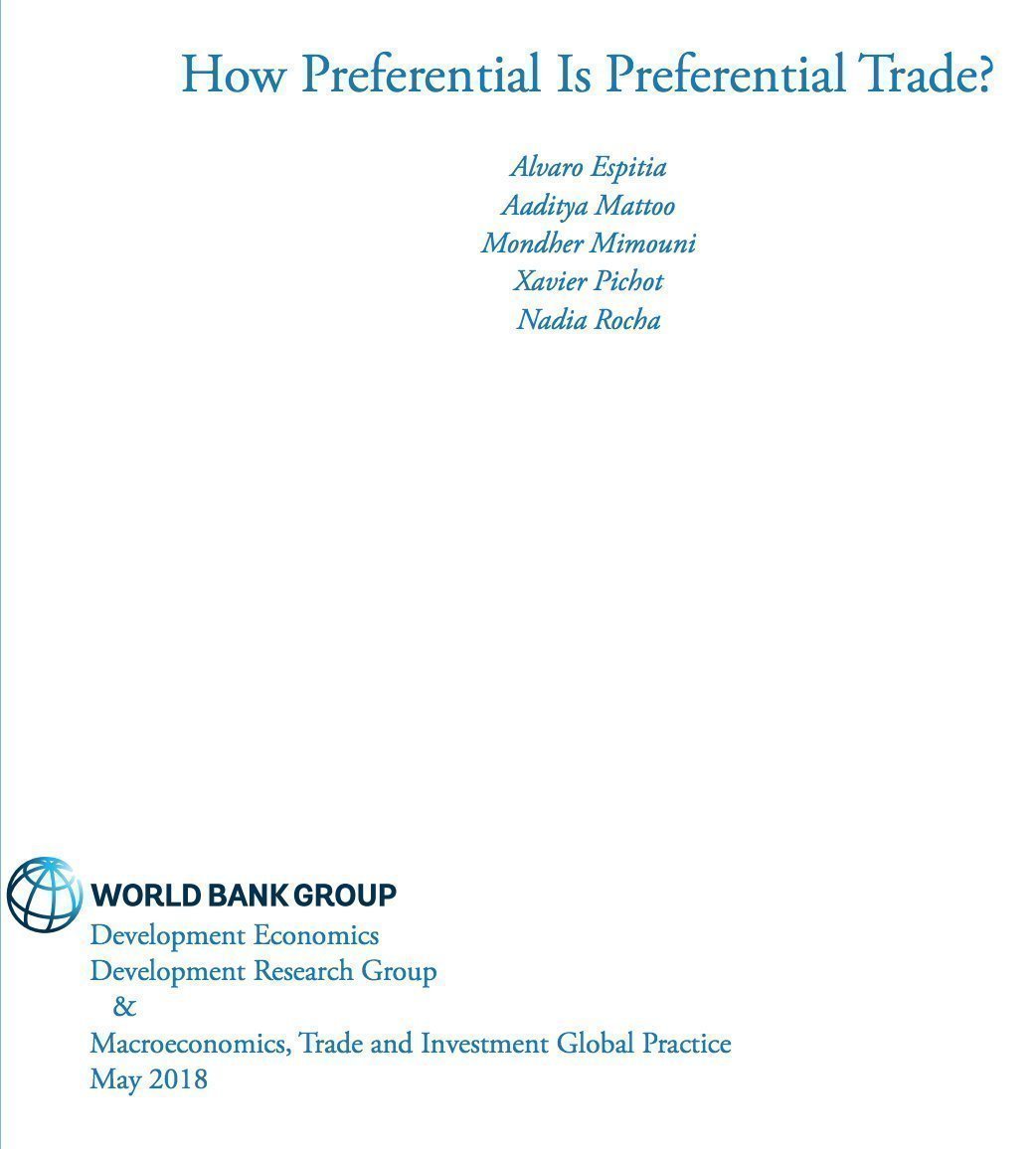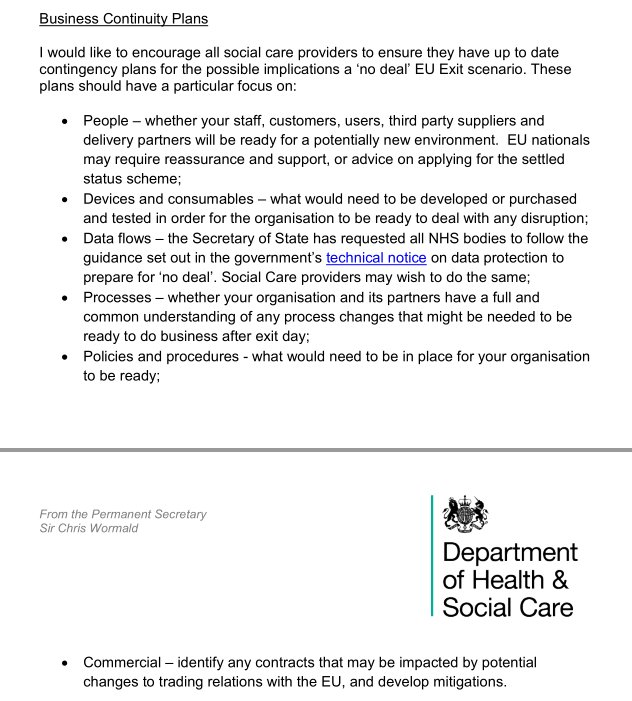Those are not the tariffs! Those are the Import prices used to calculate the tariffs!

For Morocco the tariffs are found when you open up the conditions box.
Do you see lots of zeros?
A tariff is applied only when the import price drops below €26.40. On that it's 50 euro cents!
Economist For Brexit. You're a joke!
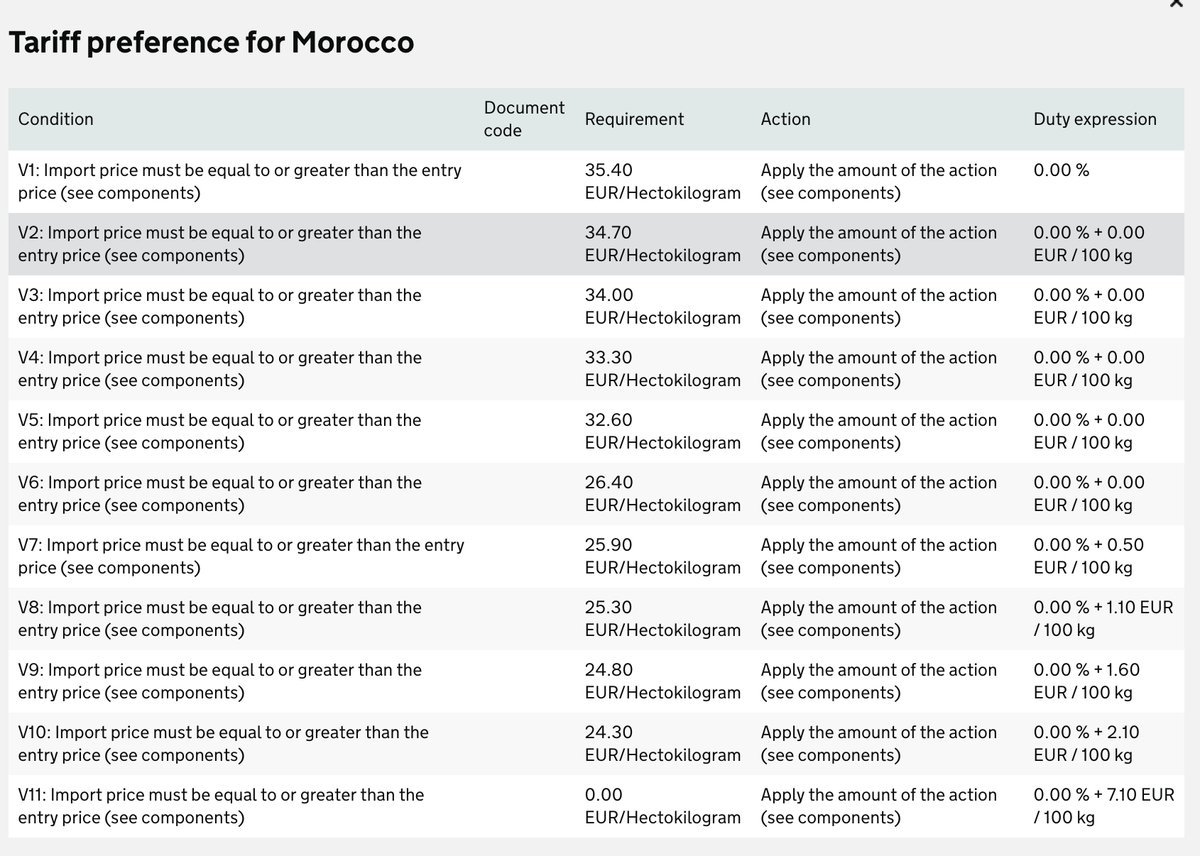
No that's the "Standard Import Value (SIV)"
Does he know anything about tariffs at all?
The MFN tariff is under "ERGA OMNES Third country duty". 10.4%.
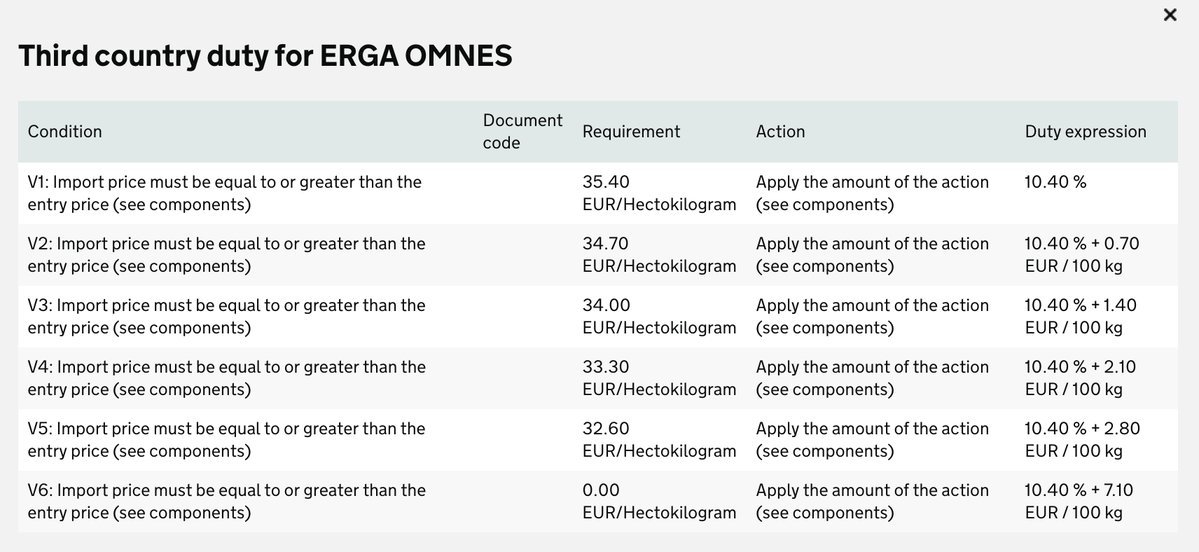
As you can see it's a massive part of their export market!
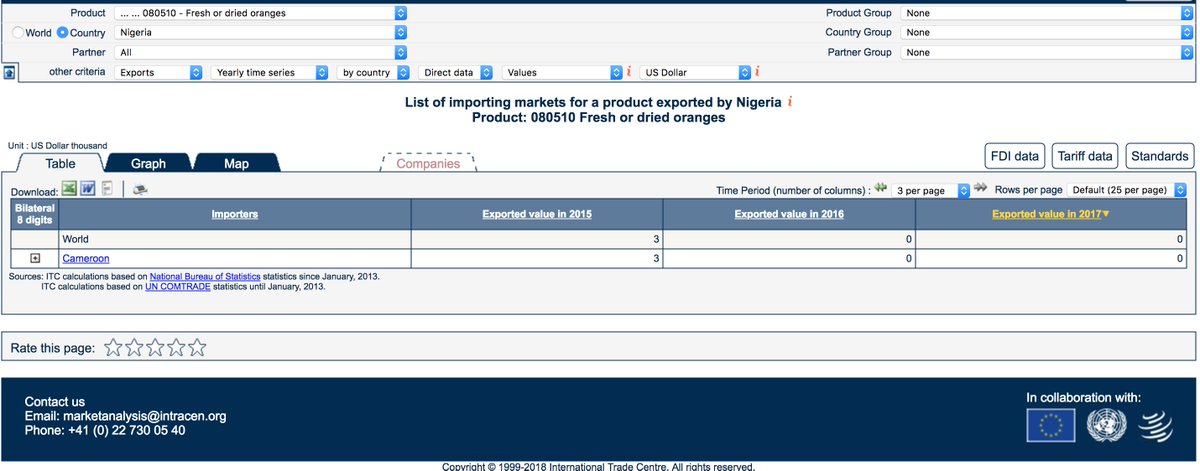
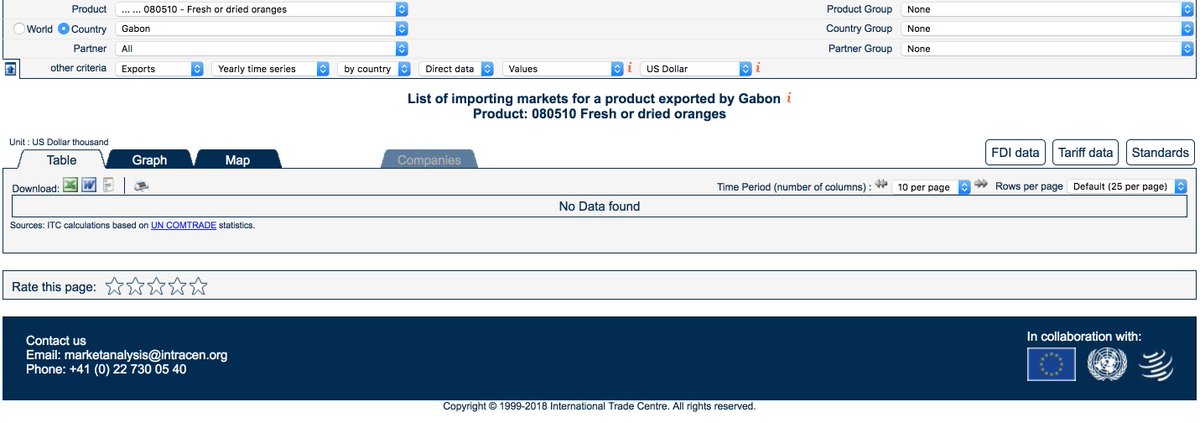
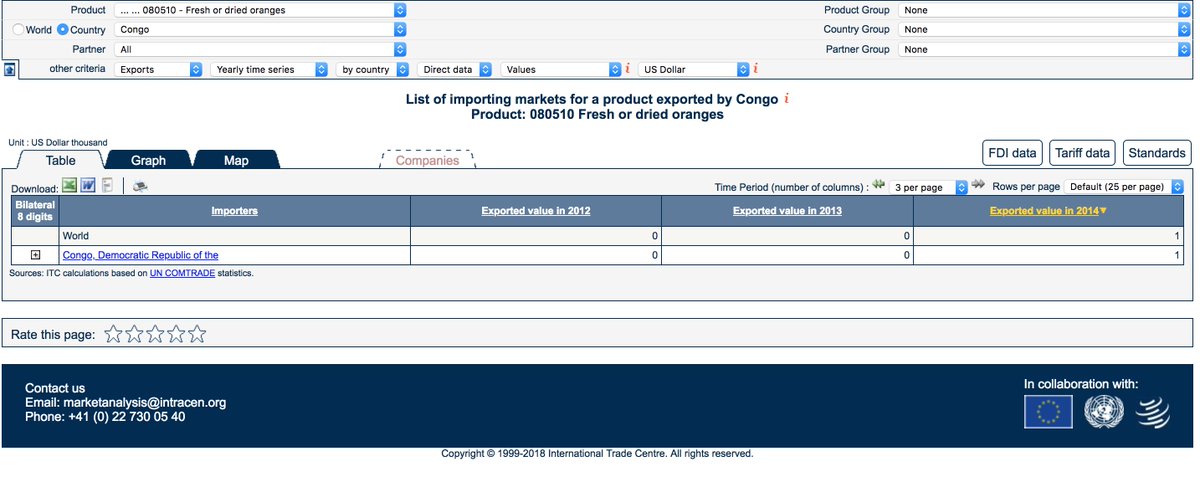
guardian.ng/business-servi…
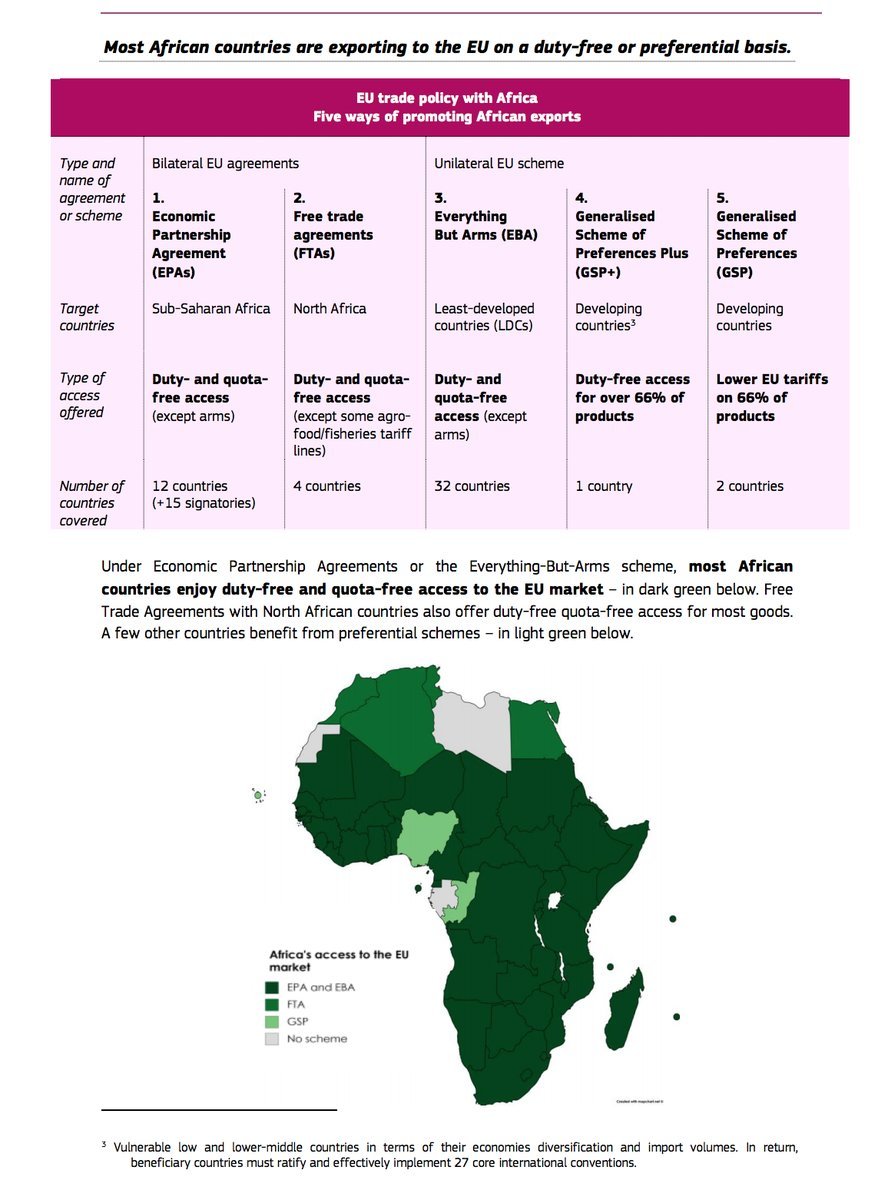
This means it falls outside of the scope of EBA which is designed to give an advantage to the countries on the far right of this table.
cnbcafrica.com/zdnl-mc/2017/1…

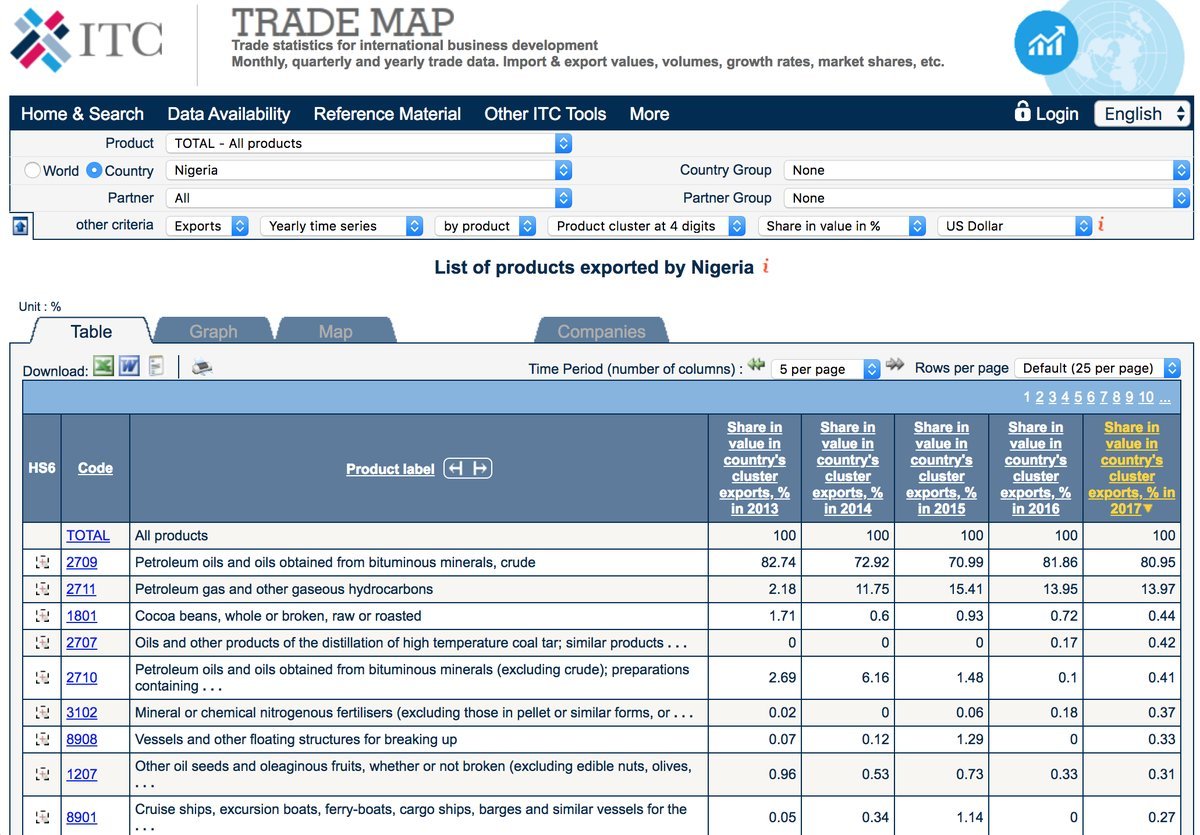
trademap.org/Bilateral.aspx…
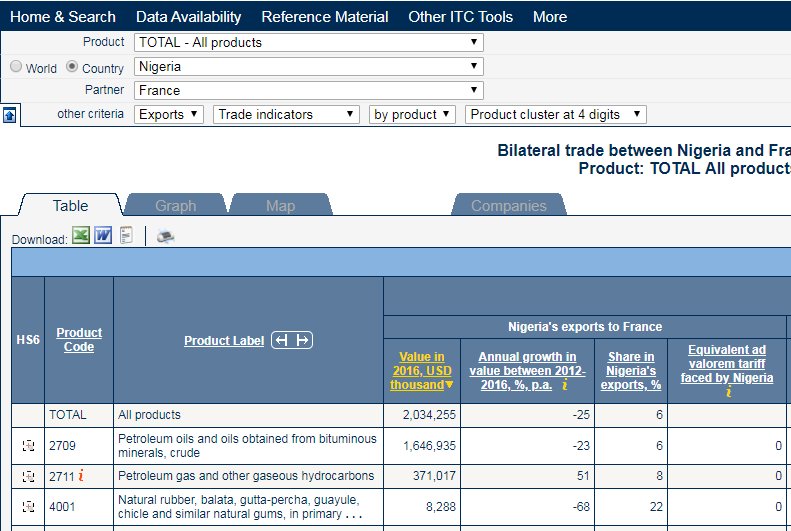
This means it qualifies for tariff reductions under the EU's GSP scheme.

But there are three basic exceptions, 1. Customs Unions; 2. Free Trade Areas; 3. A special provision for developing countries - Generalised System of Preferences (GSP).
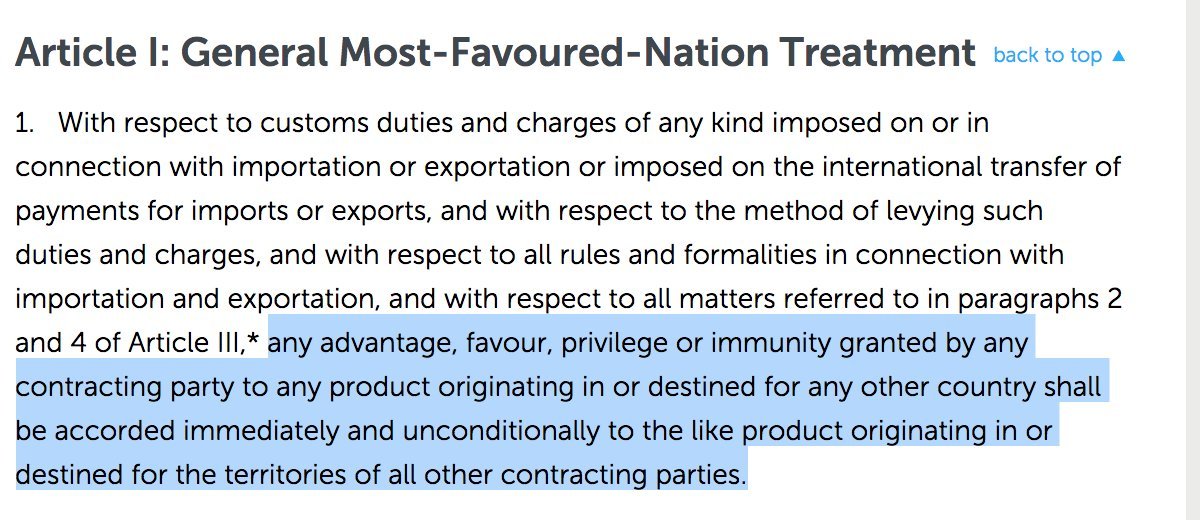
unctad.org/en/Publication…
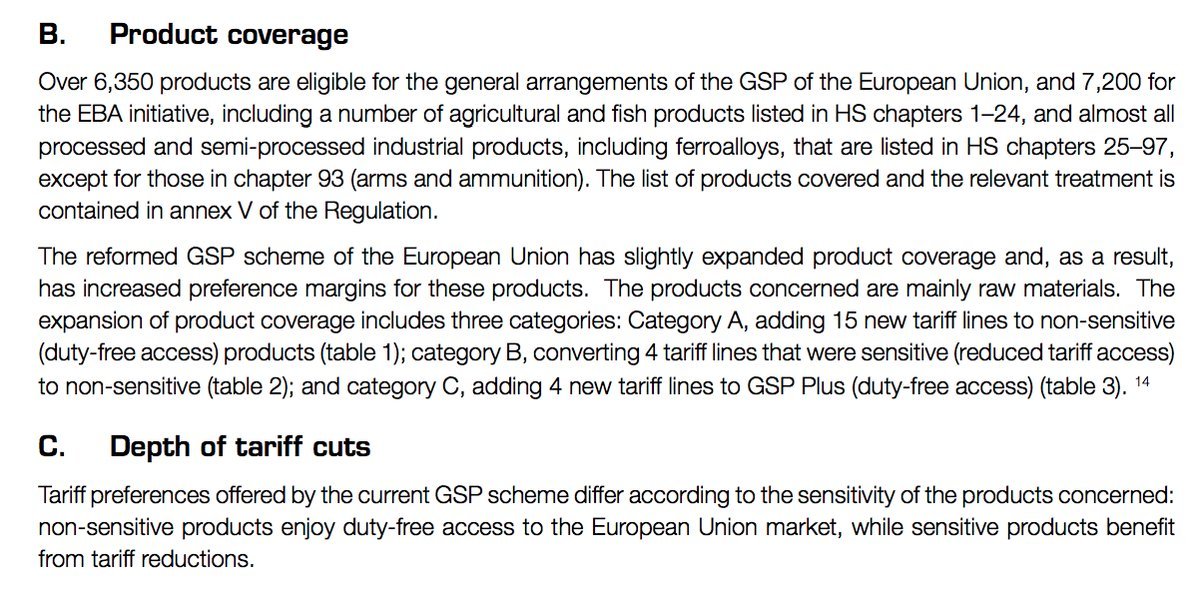
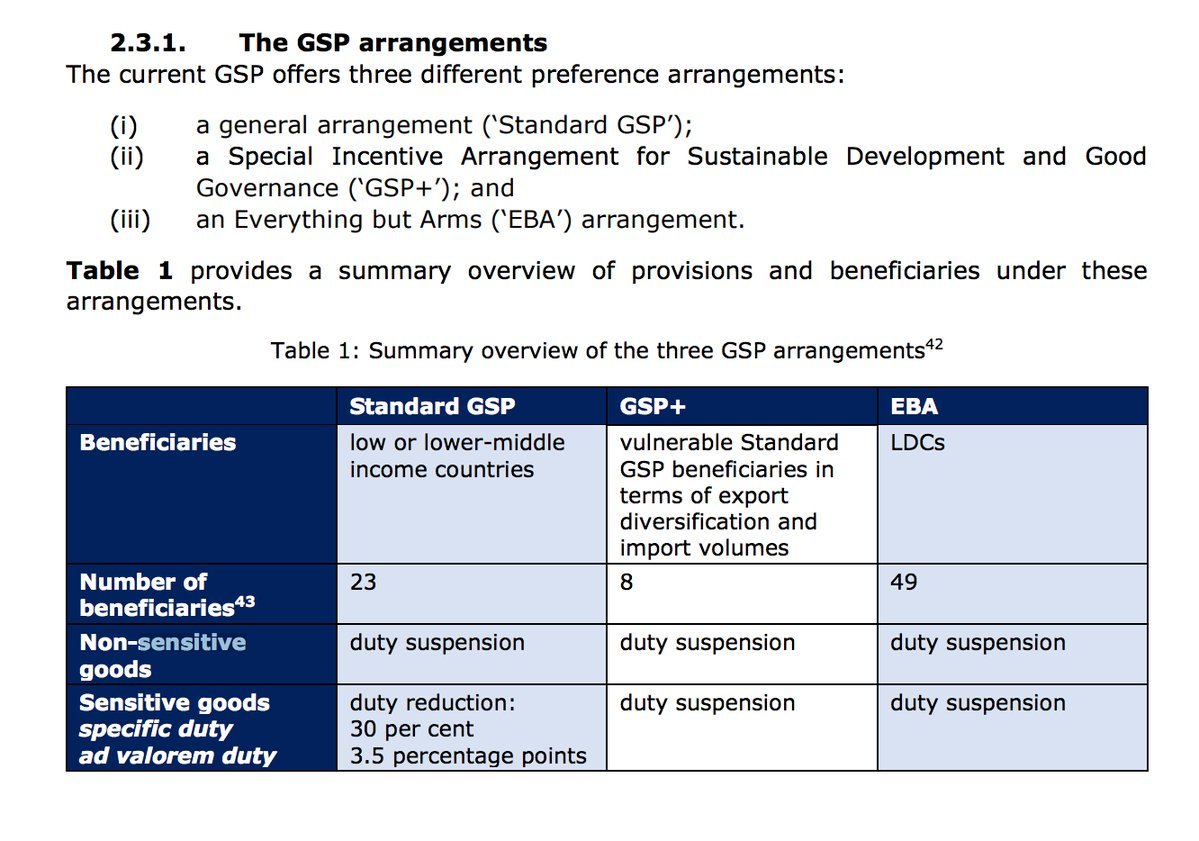
It's complicated, but what it means is that the % shown on TradeMap virtually never applies, certainly in the case of tomatoes.
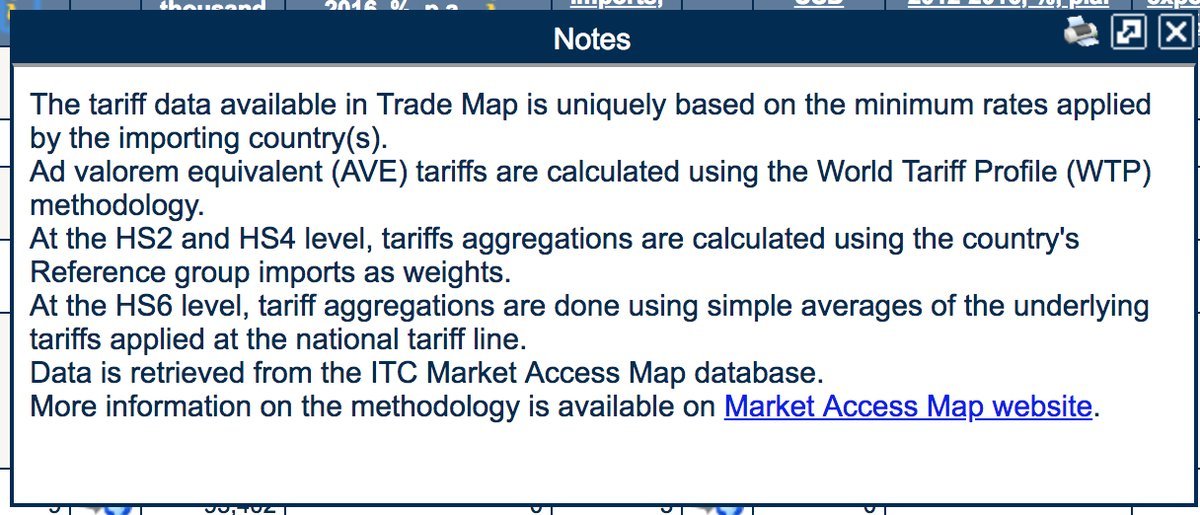
wcoomd.org/en/topics/nome…
Lord Ridley is using the values from TradeMap for the first 2-digits level HS2.

Side note: Are we really talking about the possibility of importing live animals (it's all live animals but predominately for livestock) from Nigeria all the way to the UK?
This does not mean that every carrot and tomato (fruit?) and cabbage has 12% tariff slapped on it. It's using an average. Perhaps we should delve into the schedule beyond HS2.

Tomatoes.
I already explained how the the tariff shown for tomatoes is averaging out the Entry Price Systems tariffs so that the 25% figure is not really valid. What about the onions at 30%?
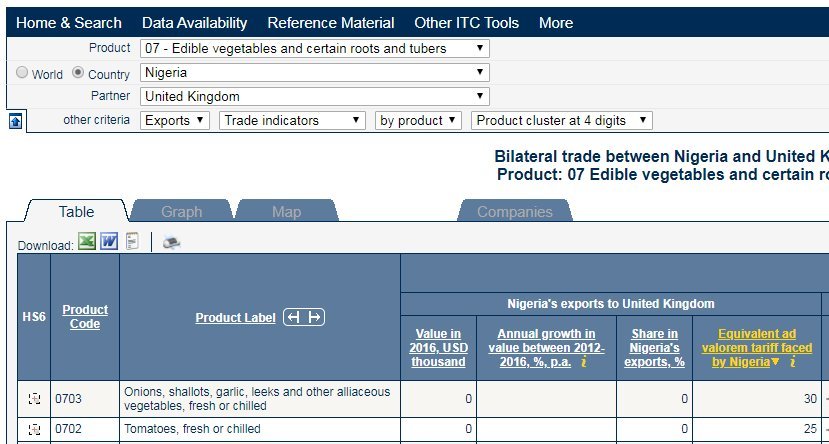
85% though, what's going on there?
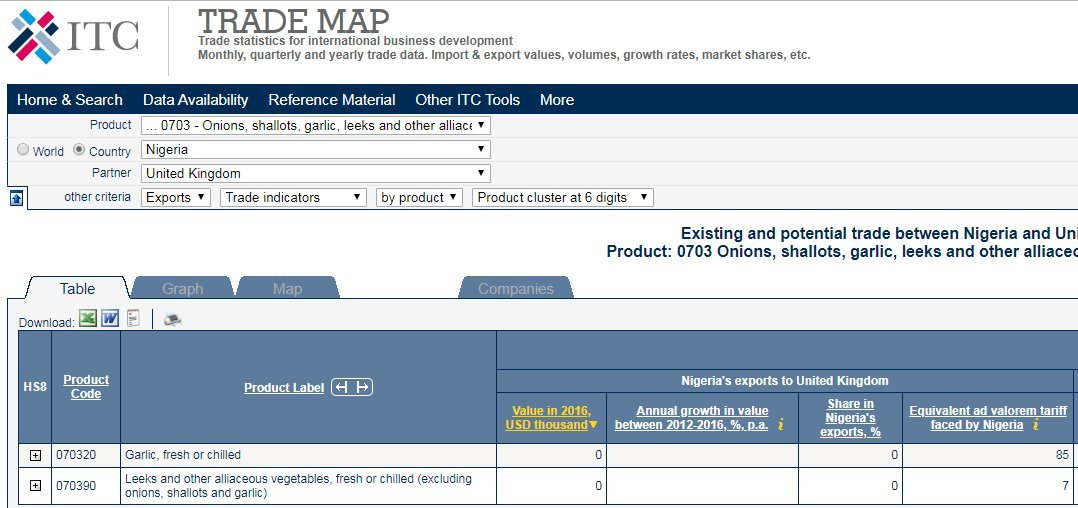
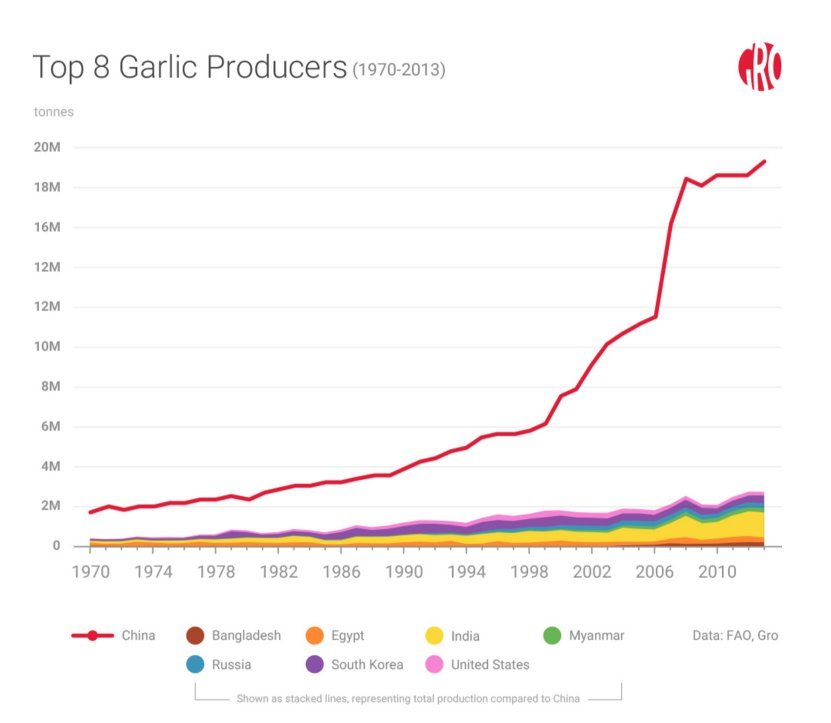
Both the USA and S. Korea imposed a 300% tariff on garlic to cope.
The 85% seems relatively modest. But why does this potentially affect Nigeria?
Because of the WTO MFN rules. Garlic isn't on the GSP list.
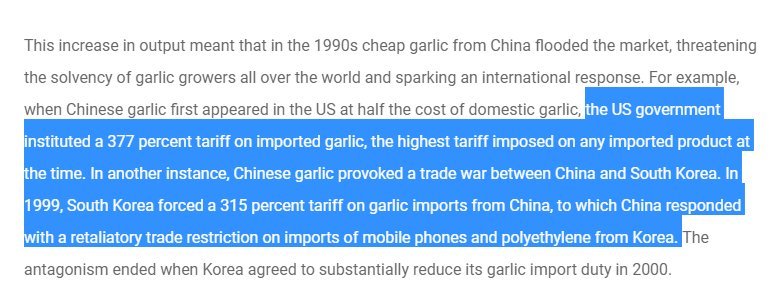
But that's not the end of the story. The 85% doesn't apply under quota
Under quota garlic is imported at only 9.6%.
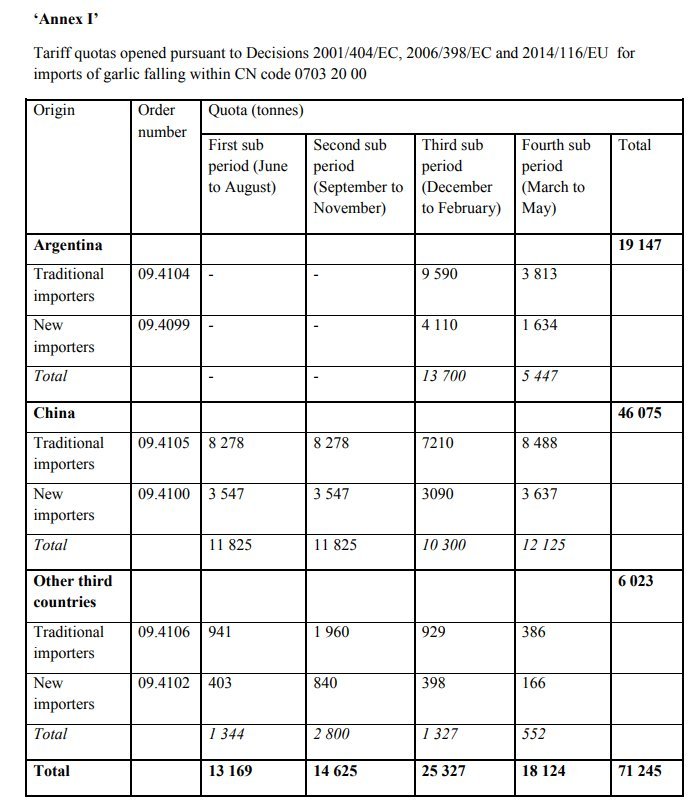
Nigeria has access to that quota as a 3rd country. SO that 85%, which is used on TradeMap to calculate that 30% for veg isn't really representative of the tariff burden for Nigeria.
Are Nigeria garlic exports muzzled EU tariffs anyway?
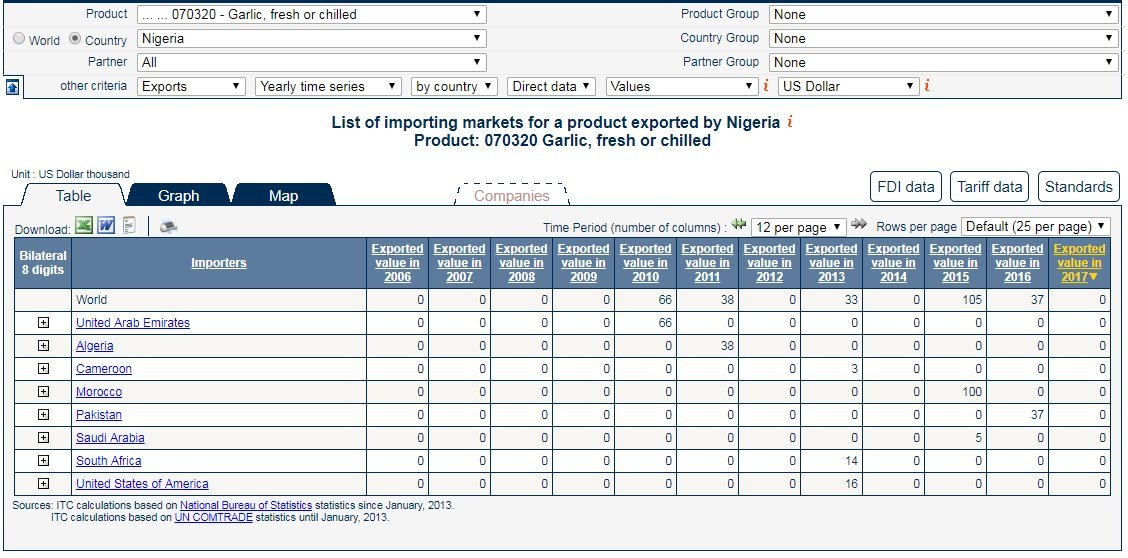
In summary. The tariffs on Lord Ridley's letter are often distortions because of the way the averages are calculated. Nigeria isn't exporting this stuff anyway and Nigeria could avoid them altogether by signing an EPA tomorrow.
/END
I've found this research on oranges and the Entry Price System which shows that for oranges at least the Entry Price is hardly ever breached. So the top-line EPS tariff almost always applies. This makes the Trademap averaging even worse.
uni-hohenheim.de/qisserver/rds?…
